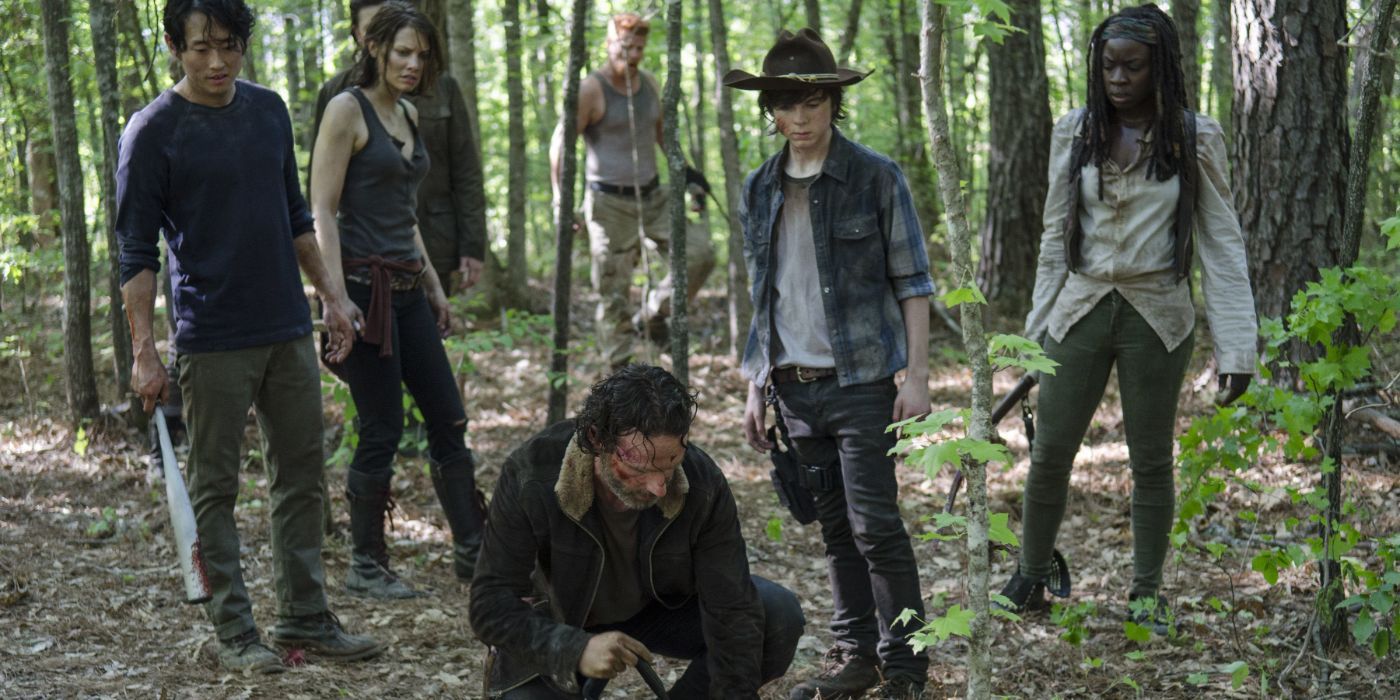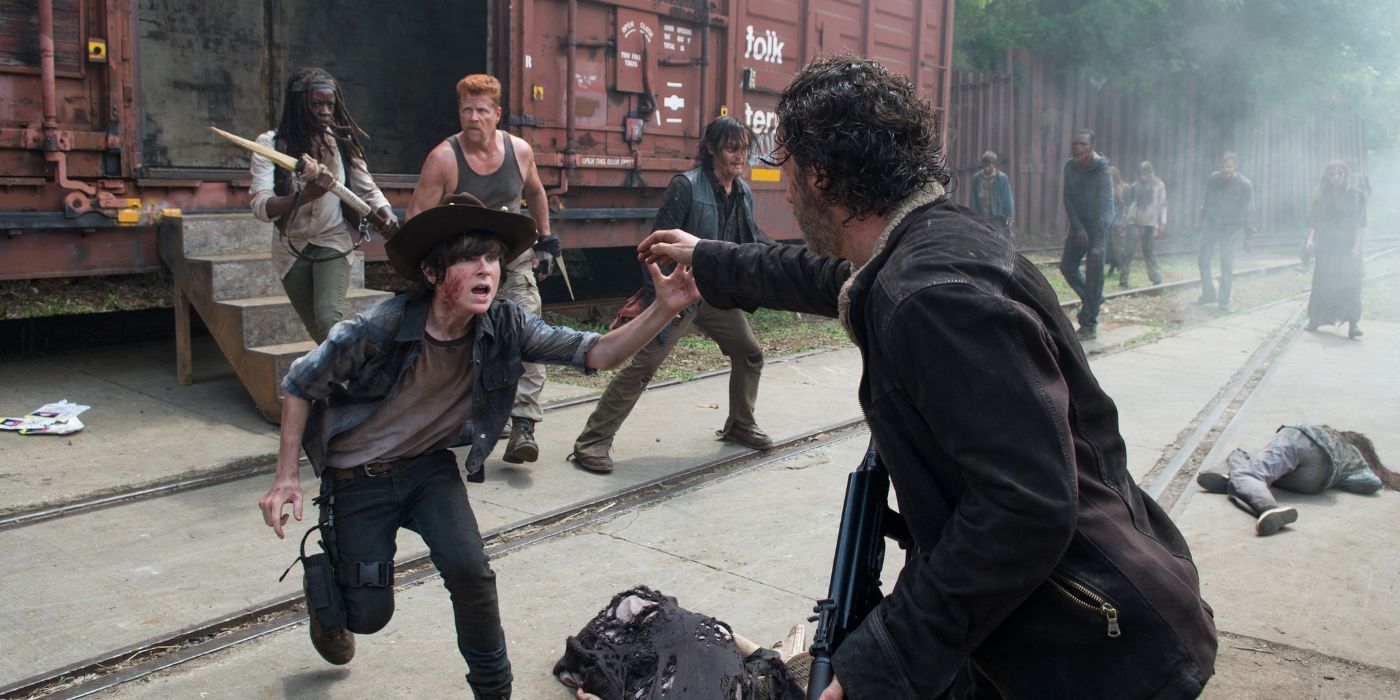“Hunt or be hunted.”
The Walking Dead introduced us to many captivating kinds of sanctuaries and methods of survival, but none are quite as memorable — yet disappointing — as Terminus. Spanning across the last few episodes of Season 4 and the first couple of Season 5, the idea of Terminus is far more impressive than the actual community itself. Terminus is the franchise’s first cannibal group with a vaguely intriguing backstory that had far more potential than what was delivered. With so much anticipation built up during the separated groups’ long travels, coupled with the enduring thematic and narrative impact the community made on the show, Terminus’ quick downfall and stunted screen time was certainly a missed opportunity for The Walking Dead.
‘The Walking Dead’ Built Up Anticipation for Terminus
Terminus became a tentative beacon of hope for the scattered group of survivors that were forced to flee the overrun prison in Season 4. Each group had managed to spot a sign along railway tracks that identified Terminus as a safe haven and deduced that the other groups would be heading in the same direction. With each episode flipping from one small group to another, we are given insight into new budding relationships and character dynamics, from the unexpected bonding between Daryl (Norman Reedus) and Beth (Emily Kinney), to the more playful scenes between Michonne (Danai Gurira) and Carl (Chandler Riggs). This slow build up also rewarded us with one of The Walking Dead‘s most haunting episodes, “The Grove,” where Carol (Melissa McBride) and Tyreese (Chad Coleman) are forced to deal with the unnerving sisters. If Terminus is going to follow episodes like these, it was bound to be just as thrilling, right?
This on-screen anticipation and build up also reflected the anticipation for Terminus in real life, as many fans believed it would be the TV counterpart of The Hunters from the comics. In the comics, the Hunters were a nomadic group of people who had turned to cannibalism to survive the harsh conditions of the apocalypse. Although they initially scavenged for lone survivors or the stragglers of larger groups, they were desperate when they encountered Rick’s (Andrew Lincoln) group and attacked them. However, the show was extremely tight-lipped about these theories at the time, with executive producer Greg Nicotero resolutely shutting it down as an “interesting theory” in an interview with The Hollywood Reporter. Later on, this theory was essentially confirmed by the Season 5 tagline: “Hunt or Be Hunted,” once again riling up fans for the cannibals’ debut.
Terminus Was Very Underwhelming
Despite the well-crafted and slow-burn build up to Terminus, the sanctuary ended up failing on three distinct fronts: the limited cannibalism, the lackluster backstory and its quick demise. Given that the community’s “thing” is cannibalism, there is far less of it than we are promised. Apart from the bloody scene at the trough and the later scenes of the cannibals eating Bob’s (Lawrence Gilliard Jr.) leg, there are no real provoking or scary scenes. Although the walkers give us enough gory “cannibalism” scenes, seeing normal humans do it would have been far more confronting and satisfying for The Walking Dead‘s bloodthirsty fandom. It’s also particularly disappointing that none of the core cast fell victim to cannibalism, especially considering Terminus was a major milestone in their journey.
While the backstory given to Terminus is interesting, it seems slightly arbitrary and underdeveloped, especially when compared to the comics. Terminus was originally a safe haven for lost survivors. However, their generosity and lack of a vetting system was taken advantage of by a monstrous group of travelers that locked the hopefuls up while torturing and assaulting them. As such, the Terminans ruthlessly fought back and eventually resorted to cannibalism, hence “hunt or be hunted.” While their villain origin story is quite harrowing, they haven’t quite unlocked their full potential as believable monsters. In the comics, the Hunters had resorted to eating the children in their group at some point, and adding this element would have elevated the Terminus story, completely doubling down on the Season 5 thematic concerns of brutality vs. humanity, or “can you do what it takes to stay alive?” which Nicotero said in the aforementioned Hollywood Reporter article.
It was particularly damning to see how easily Carol (someone who had only just gotten into her badass era) and Rick wiped Terminus out. While Carol’s Terminus episode was key to her transformation into a lone resourceful assassin and was a pleasure to watch, did it really took a singular tiny woman miles away from the establishment to completely destabilize and demolish the foundations of your sanctuary? Although it is certainly believable that Carol had the gall to single-handedly destroy the community, what is not believable is the utter lack of resistance she faced. She barely even broke a sweat! Similarly, Gareth (Andrew J. West), the leader of Terminus, was quickly reduced to begging after facing Rick, and while Rick is terrifying at times, we expect the figurehead of cannibalism to put up more of a fight. In the end, Terminus was diminished from the hardened community they were made out to be, to a rabble of humans who had simply lost their way.
Terminus Had a Lasting Impact on ‘The Walking Dead’s Characters
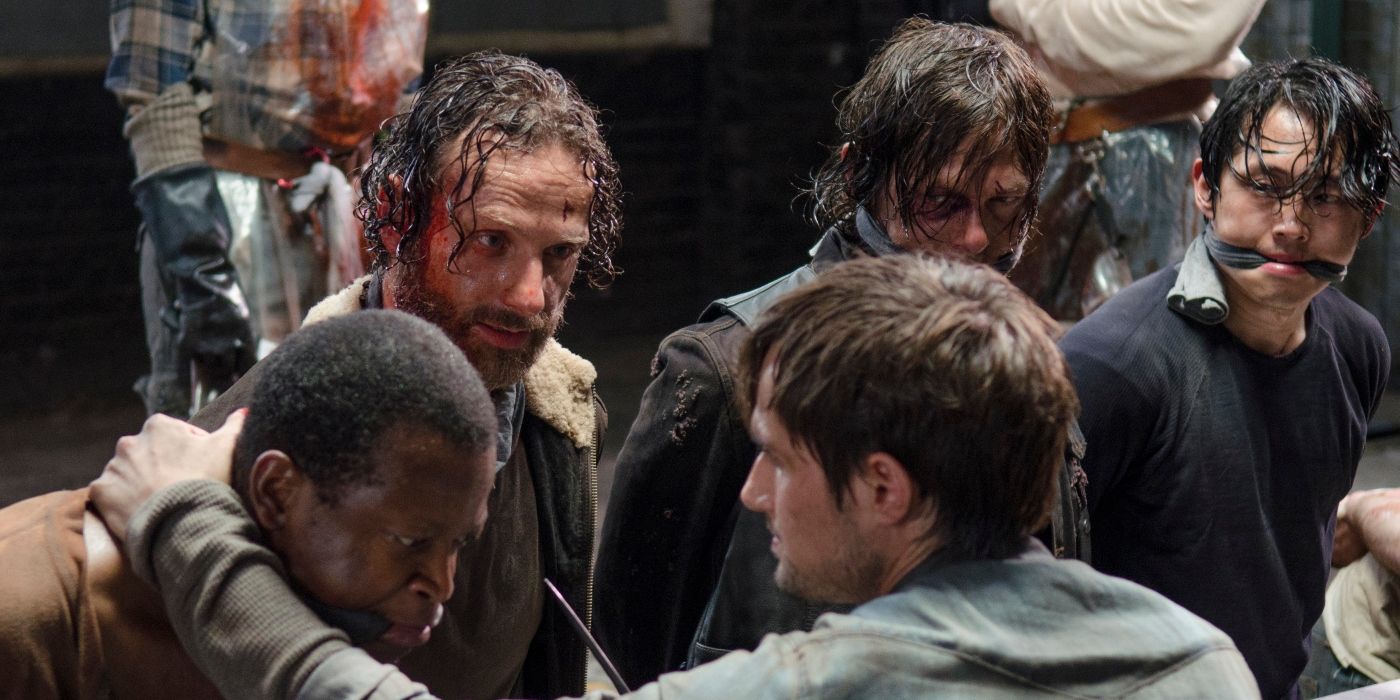
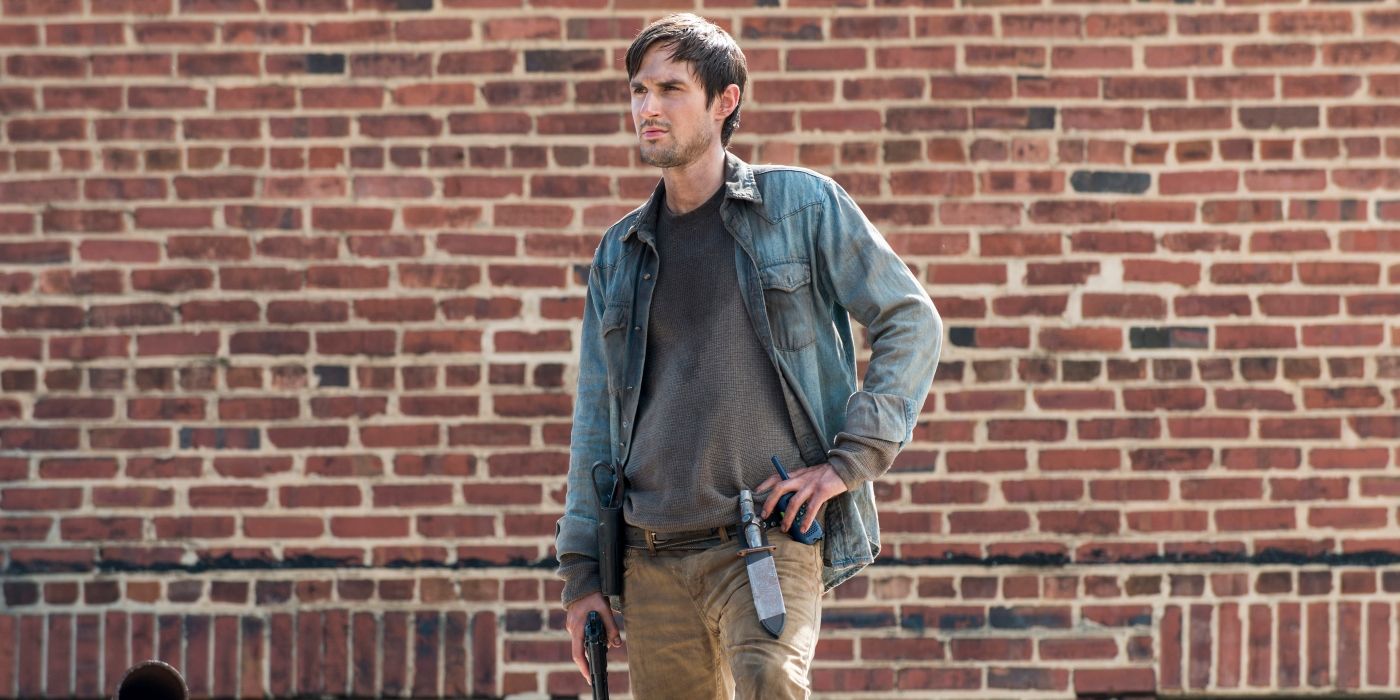
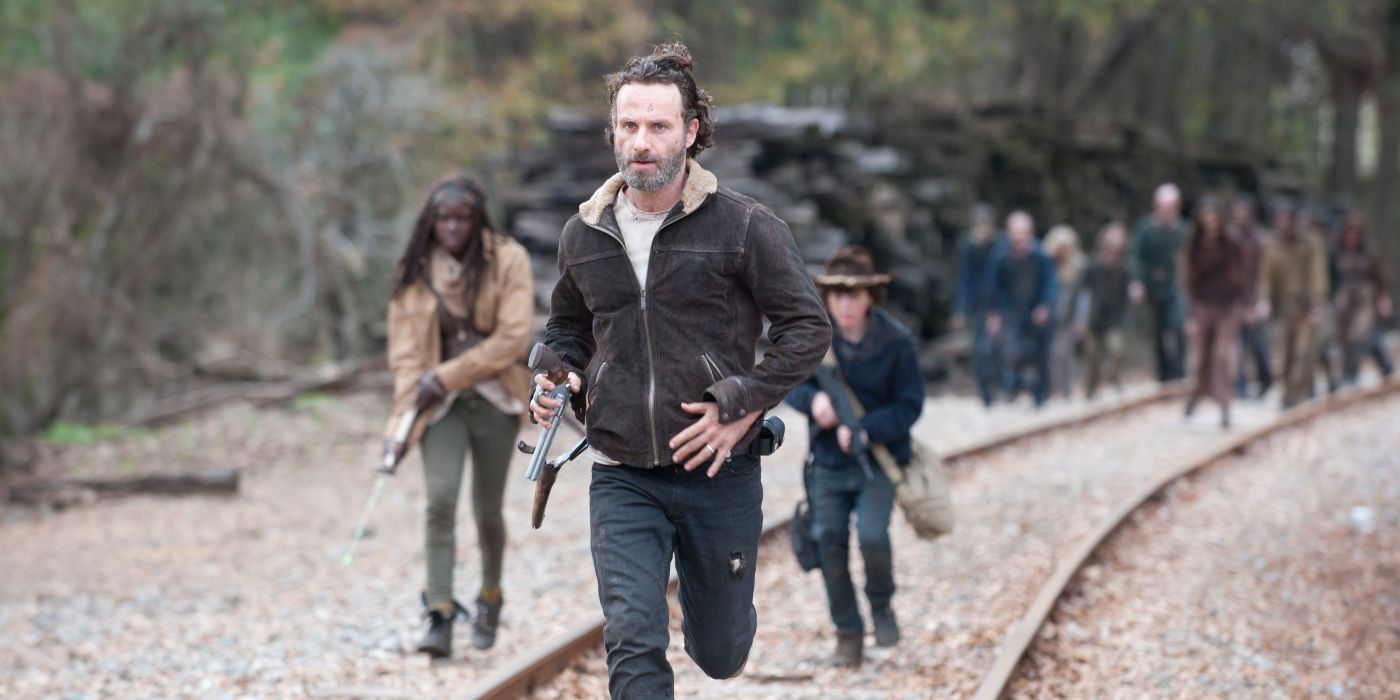
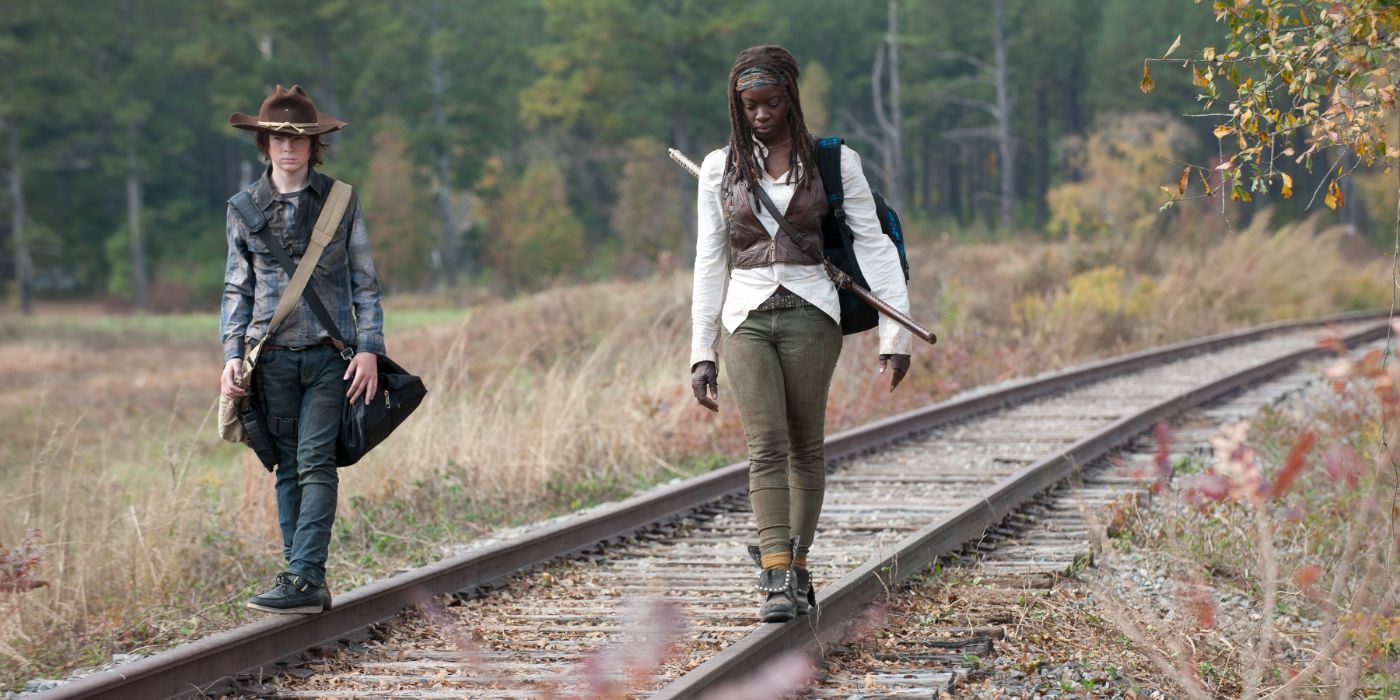
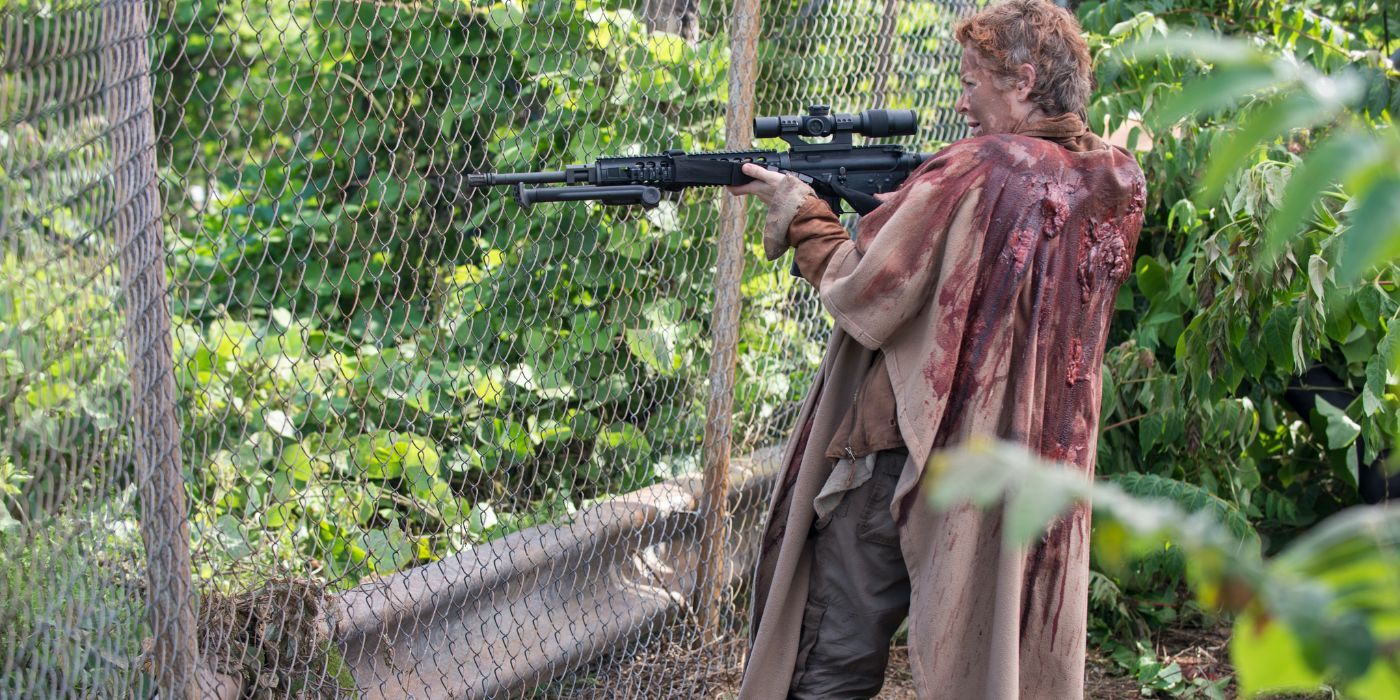
The failures of Terminus are amplified when its significant impact on major characters is also considered. The events of Terminus, namely the ending, were considerably formative for Rick’s development back into the heartless sheriff we grew to adore. His time at the prison saw him losing loved ones, hallucinating dead people, then renouncing all violence and becoming “Farmer Rick” instead. Terminus marked the confirmation that merciless Rick had hit his stride again, proving that his brutality towards the Claimers, that led to Rick’s gnarliest kill of the franchise, was not just a one-off.
